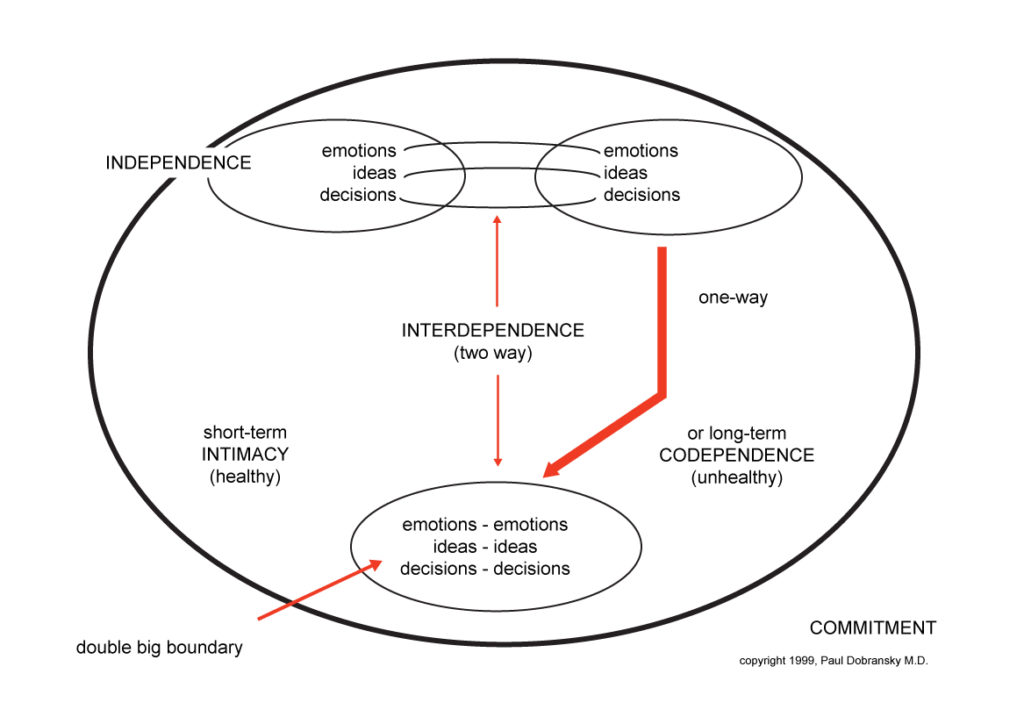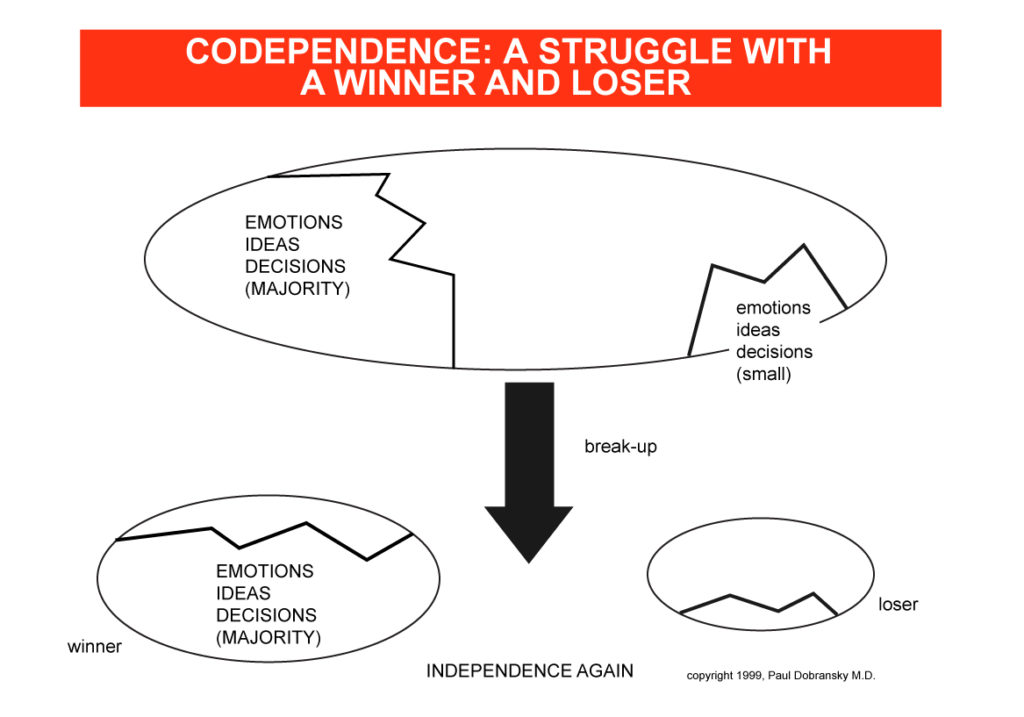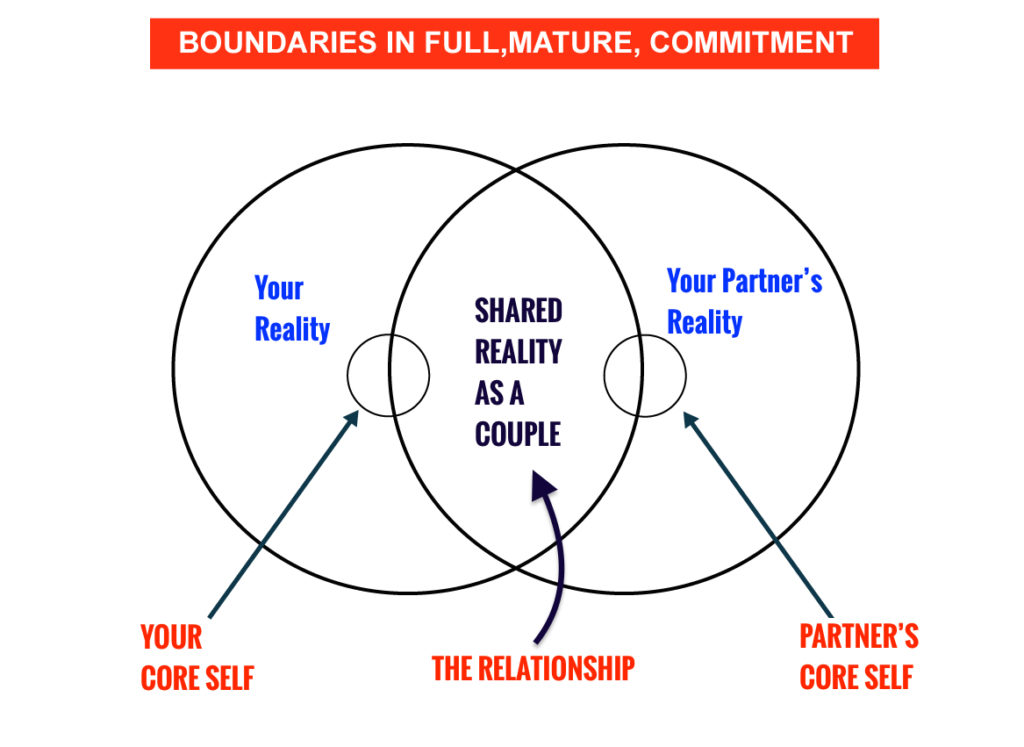Shared goals are tricky, because we need to understand the differences between codependence (and intimacy), independence, and interdependence in order to wrap our minds around a major task of intellectual attraction - to both meet our personal life's goals (called a "mission" or "purpose"), while at the same time, agreeing upon major, shared, "joint goals" as a partnered couple.
If you could imagine two circles that intersect and join at each other's center, then the oval, "mandorla" shape of their overlap is what we call, "the relationship." It will have shared resources, shared beliefs and values, shared responsibility (it is a shared personal boundary.) However, all that constitutes a person is not just within that overlap. There is personal privacy, thoughts, emotions, and personal goals that remain personal, even within a mature partnership. When this overlap is really large, then the relationship is "codependent." When the overlap is so small that you have to wonder whether there is intimacy ever, or a relationship at all, it is an "overly-independent," cold relationship. But when it's just right, "the Goldilocks Zone" of relationships, it is "interdependent." Which means that both personal and shared goals are given value and can be met successfully in intellectual attraction.
You have likely encountered many times when there has been a great mismatch between the details of a partner's personal goals - such as financial, career, or parental goals that are very different from your own. Because you are so passionate and enamored at first, you may shrug this off as something that you can compromise on or even sacrifice about yourself, for the sake of getting together or staying together. It is a Faustian Deal that you are making, and it will eventually rear its ugly head.
He is a cowboy from the West, and she is an attorney from the city. They have very different goals. She wants one child and he wants six. This is an obstacle to goals that are dearly held, which carry beliefs that are dearly held, too. When they get together, will they live in the city or the country? Will they all become Catholic or Jewish? Or only the children? And how many will they have? When you hear of such personal, dearly-loved goals in frist dating, do pay attention, because it may cause trouble later.
This tends to cause one of the partners to have to work extra hard for them to reach the personal success at their personal, "life's purpose" or "life's mission" on account of sacrifice of it for the "joint goals" of the couple - even when they fully agree with the latter. Which can lead to the resentment of the one doing far more work, energy expenditure, time expenditure, when their personal goals do not simultaneously also carry weight in the "joint goals." And where the partner's personal goals are very similar to the stated "joint goals" of the couple. This often happens when there is codependence in the relationship, and one partner is more of a "bully" about what constitutes "joint goals" than those of the other.
It's where you often hear, "you're not with the program," or "get with the program" in a fight, or when at breakup, one of the partners says, "we grew apart" (meaning that the life's goals personally put on hold to sacrifice for the "relationship," were neglected all along by the more narcissistic partner, who bullied the partnership into their personal goals being the same as the supposed, "joint goals.)
These dear goals will also tend to be very different from that of the partner because of Gender Instinct differences between men "on a mission" and women "with a purpose." They can't be compromised or sacrificed to the "joint goals" of the couple, or risk obliterating the very sense of self in one of the partners, by way of destruction of their masculinity or femininity (which will then also harm the sexual attraction and happiness of "feeling alive with passion for life.")
Even in the overlap between personal goals of a man or woman with the joint goals of a couple, the WAY in which the person's identity is expressed will be different. For example, a man may feel that "fathering" is a different thing with different goals than the "parenting" envisioned as a set of goals for the woman's point of view as "mothering."
Stop this at the beginning, by comparing dearly held, personal life's goals in a prospective mate, that are attuned to personal beliefs and values, "life's mission" or "life's purpose" in the first place.




